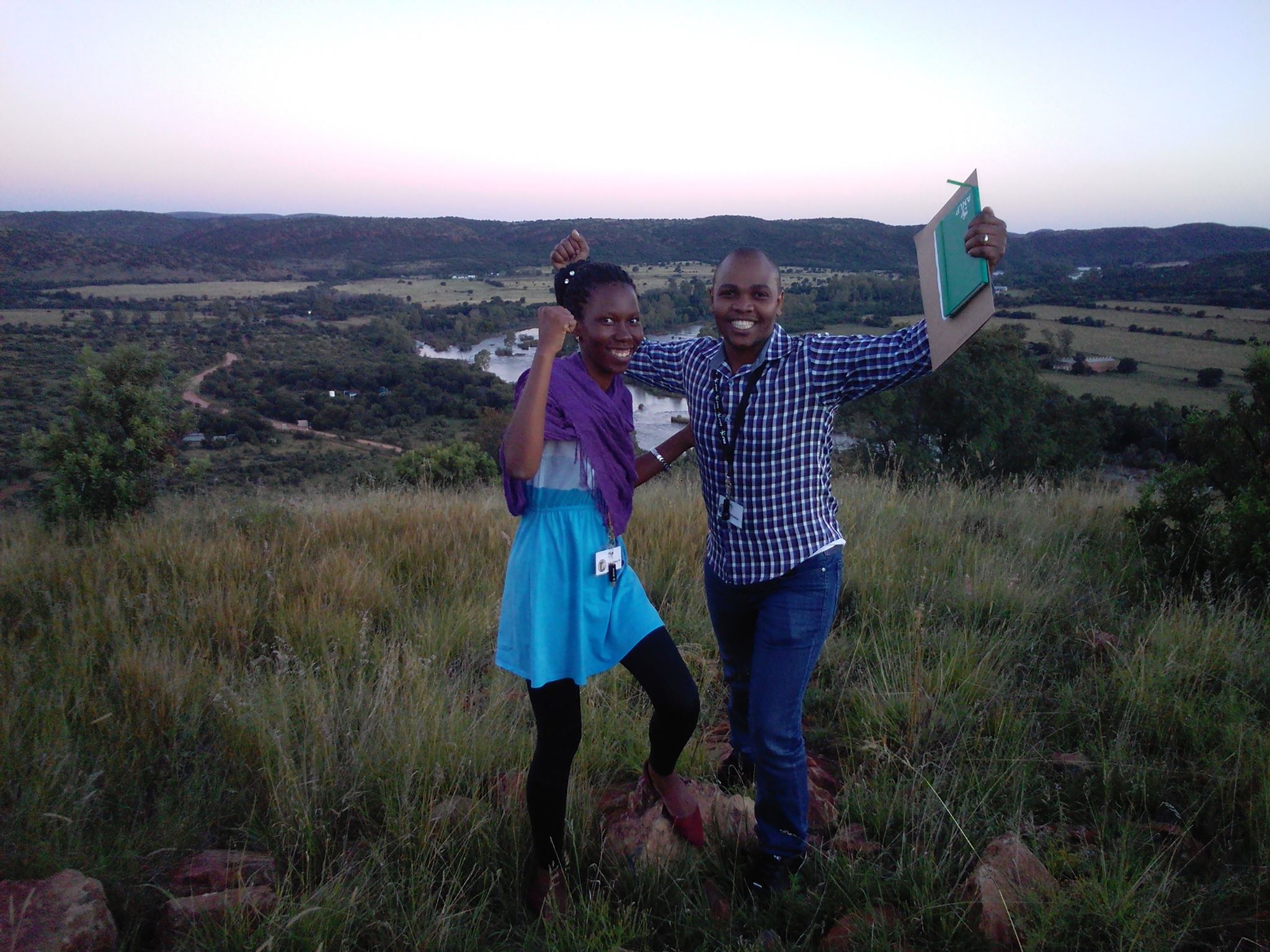Lessons learnt at the African Nutrition Leadership Programme – By Kwanele Simelane
“Yesterday I was clever, so I wanted to change the world. Today I am wise, so I am changing myself.”

Juliana Joy (left) and Kwanele Siyabonga Simelane during the 2017 African Nutrition Leadership Programme.
The African Nutrition Leadership Programme (ANLP) 2017 has been a life changing experience. Recently, I had a privilege to join intellects from various African states placed in leadership positions in the field of nutrition. This year ANLP was held in North West, South Africa at Elgo Lodge from 07 to 17 March 2017.
For long, I had thought leadership was mostly associated with employment position, age, academic qualifications, and being elected to a position. But during the ANLP programme, it was brought to my attention that one can assume leadership wherever is placed. There is no need to await appointment into an executive position. Further, leadership call for self-change before changing the world. The remarkable quote, “Yesterday I was clever, so I wanted to change the world. Today I am wise, so I am changing myself.” by Jalaluddin Rumi was mainly used to explain this concept. A leader ought to be a change agent that is, be what you want to see, and that is leadership at its best. Personally, I found this profound as often than not it easy to have high expectations on others even on things we fail to do ourselves.
Self-reflection is another great quality of a leader. This involves continuous self-reflection, noting things to begin with, that which one need to continue to do and those that should be discontinued. Additionally, a leader must be able to give and seek feedback from team members. The feedback should be specific and highlight that which needs to be changed. This is critical to build trust and mutual understanding in the team. To note, one need to be careful not to present too much external locus of control (seeing oneself as a victim of circumstances thus justifying every ill behaviour) when receiving feedback. Balancing internal locus of control (taking responsibility) and external locus of control helps one to grow and become a good leader.
Yesterday I was clever, so I wanted to change the world. Today I am wise, so I am changing myself.”
Jalaluddin Rumi
Reflecting on my day to day work as civil society, I cannot help but to realize how I should have easily addressed other previous challenges without going beyond the edge. Actually, I learnt that I have been partially exercising my leadership skills. Currently, I am in a directorship position-supervising five officers. Each of the officers is working closely with stakeholders, these include technically and financially supporting organizations. I have learnt that communication is one elements to be strengthened in my leadership skills and culture of taking responsibility of own action and not presents an external locus of control. This is critical to create and maintain good relationship and good reputation not only within the organization but also outside the organization. Consequently, I am confident that set goals can be achieved.They always say most of us can talk but only a few can communicate. Good communication skills and advocacy is imperative in leadership. Communication involves ensuring that a clear take home message is emphasized. The communicator must be able to print a picture by using the right volume, gesture and inflection. Such skill is needed when one is leading an advocacy role. In addition, advocacy requires an ability to identify key characters or influential champions to be lobbied for a buy-in to support the intended cause. This will call for giving clear information to the lobbied champions so that all advocates must have one message and same perception on the issue in question.
Once again sincere thanks to ANLP for such an eye opening life changing experience, and I am grateful to all of the wonderful team (participants, facilitators) I came to know in the course of the program. Your different characters and personalities enriched my life.
About the author: Kwanele Siyabonga Simelane comes from a family of 12, four sisters and seven brothers, in Swaziland. His parents are full time farmers and he grew up farming to put food on the table and to help finance the family’s education and basic needs. He earned a Bachelor of Science in Environmental Science majoring in Food Sanitation and Technology at the University of Swaziland in 2009 and then worked for the Municipal of Mbabane as a Public Health Inspector. In 2013, Kwanele received a Masters of Science in Nutrition Science at the Hebrew University of Jerusalem, Israel and returned to work for the municipality until he joined the NGO, Swaziland Infant Nutrition Action Network, where he now serves as Director. He is currently undertaking fellowship training in Morocco on stable Isotopes technology, funded by International Atomic Energy Agency (IAEA) in preparation for a project to determine the level of exclusive breastfeeding in Swaziland – the field in which he is preparing to undertake his PhD.
Learn more about the 2017 African Nutrition Leadership Progamme.